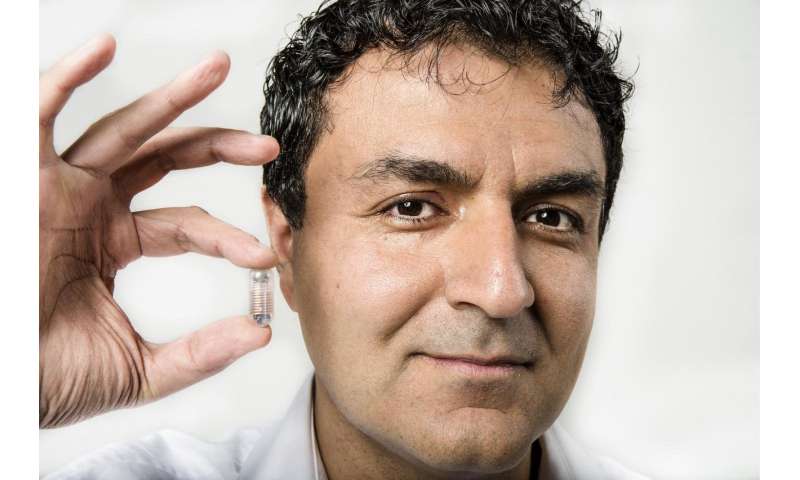Sensational works on sensors snare major award

RMIT University's Distinguished Professor Kourosh Kalantar-zadeh has been recognised as making the biggest impact in measurement science across the Asia-Pacific region in the last five years.
Announced in the United States overnight, the inaugural Advances in Measurement Science Lectureship Awards recognise three individuals across the globe who have most significantly advanced the field.
The awardees were chosen by the American Chemical Society based on the significant impacts of their recent works on the fields of sensors and analytical chemistry.
In addition to the Asia-Pacific winner, the award is given to one person from the Americas, and one person from the Europe/Middle East/Africa region.
Kalantar-zadeh, who is based in RMIT's School of Engineering in Melbourne, Australia, has been honoured for his impact on the field of sensors in recent years through a number of novel measurement sciences.
Kalantar-zadeh and his group have developed ingestible "smart pills" which journey through and measures gas levels in the gastrointestinal tract.
They demonstrated super-sensitive ultrathin sensors that are less than a few atoms thick, and have developed new plasmonic sensors for reaching the detection limit of single molecule.
Additionally, they re-introduced the concept of physical absorption for selective and low-cost nitrogen oxides gas pollutant sensing.
Kalantar-zadeh said: "The ingestible sensing capsules have the strong potential to revolutionise the prevention and diagnosis of gut disorders and diseases.
"They have demonstrated several thousand times more sensitivity to gut gases than alternative techniques," he said.
"Having access to these smart capsules, patients and the general population as a whole could do away with the need for painful and invasive treatments like colonoscopies for many diagnostic processes.
"I hope to see ingestible sensors to become very common and accessible to all by 2024, and offer patients what they desperately need."
It has also been predicted that such smart capsules will also generate a multi-billion dollar industry by then. The smart pills have successfully passed animal and phase I human trials and are now being prepared for phase II human trials.
Kalantar-zadeh added: "This award belongs to the group and not me. These developments came from their dedication, intelligence and hard work."
Kalantar-zadeh is also the recipient of the 2017 IEEE Sensors Council Technical Achievement Award in the field of sensors.
Provided by RMIT University